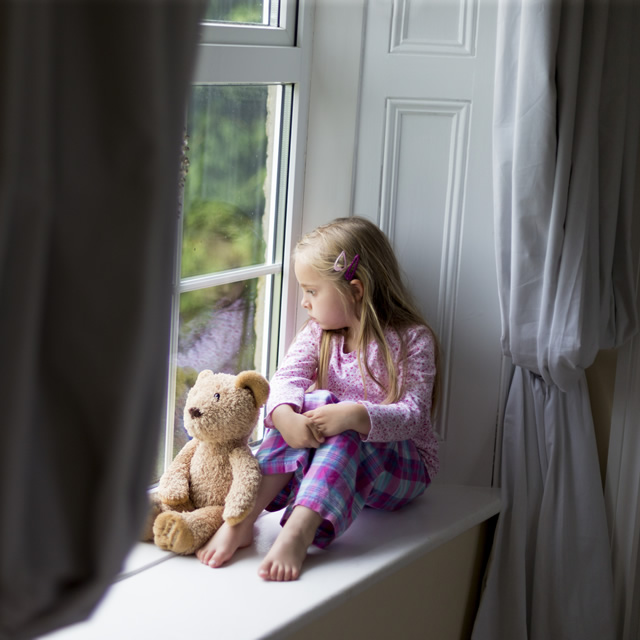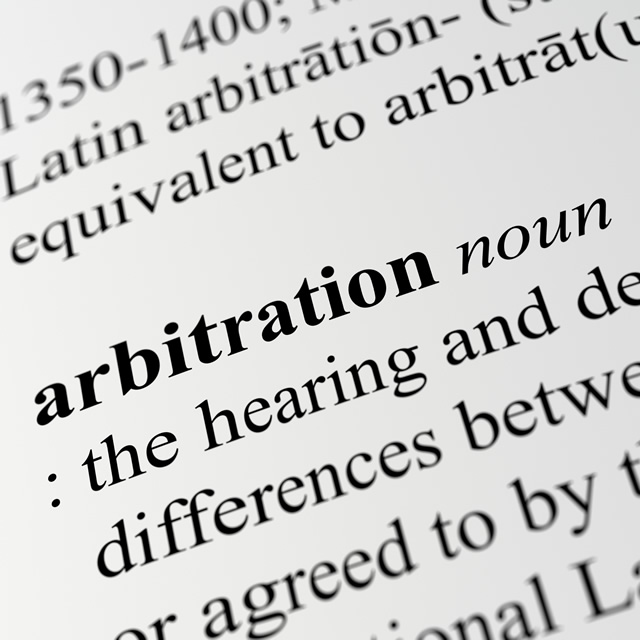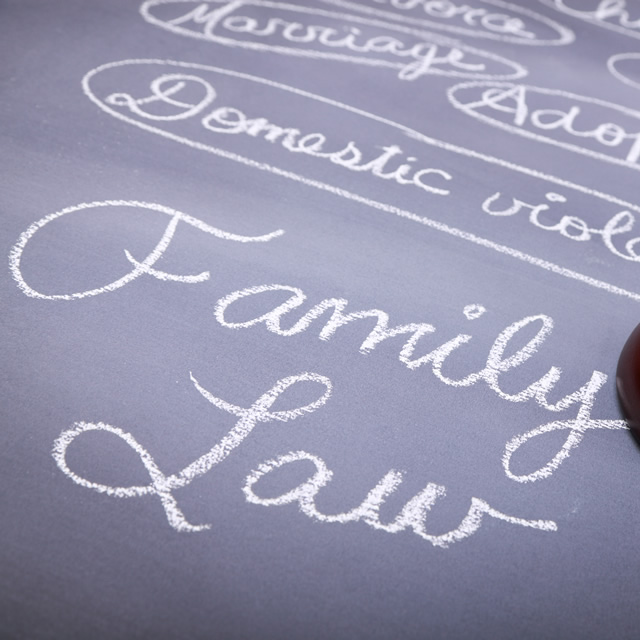Child Arrangements
Decisions regarding your children
Decisions regarding children are made by those with 'parental responsibility'. Parental responsibility means the legal rights, duties, powers, responsibilities and authority a parent has for a child and the child's property. A person who has parental responsibility for a child has the right to make decisions about their care and upbringing. Important decisions in a child's life must be agreed with anyone else who has parental responsibility.In respect of birth parents, the mother automatically has parental responsibility for her child from birth. A birth father usually has parental responsibility if he’s either:
- married to the child’s mother
- listed on the birth certificate if the child was born on or after 1st December 2003
- has entered in to a parental responsibility agreement with the Mother
- has a residence order in his name
- has a parental responsibility order in his name
If you have adopted a child you have parental responsibility by virtue of the adoption order.
For Same-sex parents it depends whether you are Civil partners or non-civil partners. Civil Partners will both have parental responsibility if they were civil partners at the time of the treatment, eg donor insemination or fertility treatment. Non-civil partners, the 2nd parent can get parental responsibility by either applying for parental responsibility if a parental agreement was made or becoming a civil partner of the other parent and making a parental responsibility agreement or jointly registering the birth.
Child Arrangements
It is important to remember that most children benefit from having both parents (and extended family) involved in their lives following separation.
Parents manage child care arrangements for their children in all kinds of ways after separation. Some arrangements involve children spending time with both parents during the week, while in other cases there may be practical reasons why one parent sees a child less frequently than this. In very few cases do parents end up sharing the child care on a completely equal basis as this is often just not a practical or appropriate solution for some families and it can be unsettling for children. Neither parent has a right to any particular amount of their child’s time.
Parents manage child care arrangements for their children in all kinds of ways after separation. Some arrangements involve children spending time with both parents during the week, while in other cases there may be practical reasons why one parent sees a child less frequently than this. In very few cases do parents end up sharing the child care on a completely equal basis as this is often just not a practical or appropriate solution for some families and it can be unsettling for children. Neither parent has a right to any particular amount of their child’s time.
Making parenting time arrangements
The children who copy best after divorce or separation are those who are able to have meaningful, relaxed, happy and flexible relationships with both of their parents and extended families. They will benefit significantly from spending time with both of their parents but in ways that take account of their changing needs throughout the remainder of their childhood.
When you are trying to work out the best arrangements for your children, think about their ages and also the patterns of care before the separation. Take into account the distances that they might be required to travel between the two homes so that they're not having to travel long distances too often. Please remember that what counts is the quality of time that your children have with each of you rather than necessarily the quantity.
Whilst you may wish to take your children's views into consideration – particularly those of older children – it is vital that they are not given responsibility for the decisions as this is the role of the adults. Ensure that, whatever arrangements you make, your children know that it is the adults in their lives that have made them taking in to account the children’s best interests.
There are no hard and fast rules about how much time your children should spend with each of you.
When you are trying to work out the best arrangements for your children, think about their ages and also the patterns of care before the separation. Take into account the distances that they might be required to travel between the two homes so that they're not having to travel long distances too often. Please remember that what counts is the quality of time that your children have with each of you rather than necessarily the quantity.
Whilst you may wish to take your children's views into consideration – particularly those of older children – it is vital that they are not given responsibility for the decisions as this is the role of the adults. Ensure that, whatever arrangements you make, your children know that it is the adults in their lives that have made them taking in to account the children’s best interests.
There are no hard and fast rules about how much time your children should spend with each of you.
Making other arrangements eg school, religion, medical matters, holidays
Raising children is not just about the time they spend with you. Decisions have to be made on a daily basis and are wide and varied but important decisions include:
- Your child’s name
- What school they will attend
- Seeking advice regarding medical issues and considering options on medical interventions/treatments
- Attendance at religious festivals and belonging to particular religions
- Contact with family and others
- Going on holiday either in this country or abroad
- Leaving the country permanently
- Mediation. Family mediation is where an independent, professionally trained mediator helps you and your ex to work out an agreement about issues such as arrangements for children and other decisions regarding a child’s upbringing. It can also be used to help with the other issues you might face, for example, your children keeping in touch with their grandparents, step families, or in-laws. Mediation can also be helpful when arrangements you’ve made before need to change, particularly as your children grow up. Helen Fitzsimons is a trained Mediator and trained to consult directly with children
- Collaborative approach. What is collaborative law? Collaborative law is a process for people to sort out their problems on relationship breakdown. Each of you appoints your own lawyer (who is a trained collaborative lawyer), but instead of conducting negotiations by letter or over the telephone, the discussions take place over a series of ‘four way meetings’. Four way meetings involve both of you and each of your collaborative lawyers. Your collaborative lawyer will be there with you throughout the process to give you support and advice as you go along. Helen Fitzsimons is a Resolution trained collaborative lawyer
- Arbitration. Arbitration is a process whereby a legally binding outcome (an “Award”) is made by a qualified Arbitrator where you have been unable to reach agreement on a range of family related financial issues and/or child arrangements with your spouse or partner. The Institute of Family Law Arbitrators (IFLA) organise and run the scheme. The scheme now covers issues of child arrangements as well as financial and property disputes arising from the breakdown of a relationship, whether unmarried, married or civil partners.Helen Fitzsimons is qualified to arbitrate on children issues and will be happy to be instructed to enable issues to be resolved at a time and venue to suit you.
Asking the courts to help sort out parenting arrangements
When all else fails and it is not possible to agree about how your children will spend time with both of you or any other issues regarding their upbringing, it is possible to ask the family courts to make a decision which will be binding on you all. However, you should consider taking this step very carefully as many parents have a negative experience of the court process.
Parents who use the courts are often looking for a judge to support their own particular view about what should happen with the children. They are often convinced that the court will uphold their view. However, the courts are usually reluctant to tell parents what to do and, when they do so, will consider only what is in the best interests of the child. The outcome may be different to what you think it should be.
Parents who use the family courts to resolve issues around parenting time will often describe it as being intrusive and talk about feeling that their lives 'have been made public'. This is because of the involvement of solicitors and court officials, such as Children and Family Reporters. The process can often feel as though it is outside of your control.
Parents also find it more difficult to work together after going through the courts. This is because they often find themselves in adversarial positions that lead to conflict. The legal process also uses rather unpleasant language such as 'care and contact' (which has replaced 'custody and access'). This often makes it more difficult for parents to work together for the best interests of their children.
Nevertheless, if parents or carers separate or divorce, and are unable to agree about arrangements for their children or other decisions regarding a child’s upbringing, they may refer their dispute to a family court. Sometimes, this is the only option, especially where one parent is preventing the children from seeing their other parent.
Where Court proceedings are necessary, or have already been initiated by another person Helen Fitzsimons provides robust representation to protect you and your children. We instruct very experienced barrister and experts if required. Please do contact us to discuss your case in more detail. If you require a second opinion or with to transfer representation to us we are happy to discuss this with you.
Parents who use the courts are often looking for a judge to support their own particular view about what should happen with the children. They are often convinced that the court will uphold their view. However, the courts are usually reluctant to tell parents what to do and, when they do so, will consider only what is in the best interests of the child. The outcome may be different to what you think it should be.
Parents who use the family courts to resolve issues around parenting time will often describe it as being intrusive and talk about feeling that their lives 'have been made public'. This is because of the involvement of solicitors and court officials, such as Children and Family Reporters. The process can often feel as though it is outside of your control.
Parents also find it more difficult to work together after going through the courts. This is because they often find themselves in adversarial positions that lead to conflict. The legal process also uses rather unpleasant language such as 'care and contact' (which has replaced 'custody and access'). This often makes it more difficult for parents to work together for the best interests of their children.
Nevertheless, if parents or carers separate or divorce, and are unable to agree about arrangements for their children or other decisions regarding a child’s upbringing, they may refer their dispute to a family court. Sometimes, this is the only option, especially where one parent is preventing the children from seeing their other parent.
Where Court proceedings are necessary, or have already been initiated by another person Helen Fitzsimons provides robust representation to protect you and your children. We instruct very experienced barrister and experts if required. Please do contact us to discuss your case in more detail. If you require a second opinion or with to transfer representation to us we are happy to discuss this with you.






